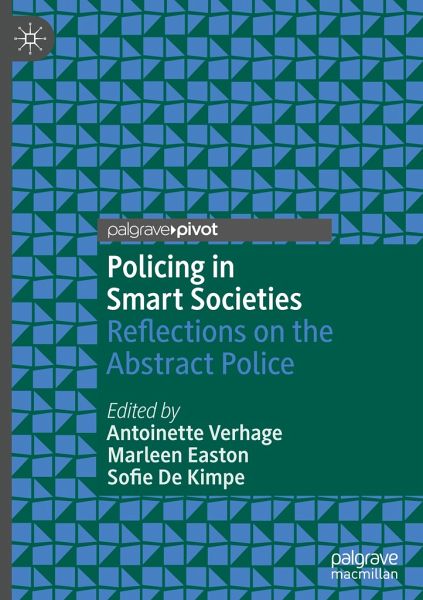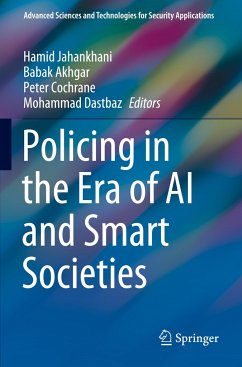
Policing in Smart Societies
Reflections on the Abstract Police
Herausgegeben: Verhage, Antoinette; Easton, Marleen; De Kimpe, Sofie

PAYBACK Punkte
21 °P sammeln!
Smart societies pose new challenges for police organizations. Demands for more efficiency and effectiveness test police organizations which are often resistant to change. This book uses the concept of the abstract police to describe the way in which police organizations have tried to adapt to these new evolutions and the consequences. The chapters stem from a conference called "Street Policing in a Smart Society" which sought to frame and analyse these developments in policing. In this book, the concept of the abstract police is introduced, analysed and then challenged from different angles, l...
Smart societies pose new challenges for police organizations. Demands for more efficiency and effectiveness test police organizations which are often resistant to change. This book uses the concept of the abstract police to describe the way in which police organizations have tried to adapt to these new evolutions and the consequences. The chapters stem from a conference called "Street Policing in a Smart Society" which sought to frame and analyse these developments in policing. In this book, the concept of the abstract police is introduced, analysed and then challenged from different angles, looking at the evolutions related to technology, plural policing, police discretion and police decision making. As such, the book is a reflection of current debates on policing and police organization, aiming to give input to the debate by providing new insights on police and police work.














